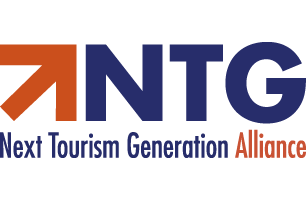The NTGSkills Assessment Methodology(SAM) is a tool that has been designed to identify current and future workforce skills at a national or regional level. As a key element of the Blueprint Strategy, the NTG Skills Assessment Methodology was developed as a research-based, structural mechanism for the analysis of rapidly changing skills and skills needs, in order to develop strategies for addressing skills gaps in the EU Tourism Sector. The focus of the SAM are the skillsets necessary for the future of the workforce, specifically:
Digital skills: an increasingly-needed array of skills that will enable workers to address labour market digital needs, for example, data management, conducting online business, using augmented reality technologies, artificial intelligence and blockchain technology.
Green skills: there is an increase in skills needs related to the environment, conscience and sustainable practices related to production and consumption and services related to tourism and hospitality. Green skills can be related to policy for energy saving, water cleaning and use of bioproducts, etc.
Social skills: in an increasingly digitalised world, transversal skills will become ever more relevant for all and social skills are important for all future workers in all kinds of tourism. Examples include problem-solving, entrepreneurship, creativity, socio-emotional, communicative, collaborative and multicultural awareness skills.
山姆的好处是它可以我们ed at multiple levels: regional, national or international, adding flexibility and improving feasibility. It assesses and identifies changing skills needs along the tourism value chain, ensuring that education and training systems are responsive to the evolving labour market needs. It does not set any fixed standards, nor does it provide any certification. Although it was developed for assessing digital, green and social skills needs in five tourism subsectors, it can be easily expanded and used to address skills needs in other tourism ecosystems.
How to use the SAM?
Once a Tourism Skills Collaborative Structure has been set up (using the Collaborative Governance Framework), a subgroup to explore skills needs, led by a Skills Assessment Project Coordinator can be established. This could be a representative from one of the organisations involved or an external expert. Through a step-by-step guide, stakeholders are provided with an effective process for future analysis of rapidly changing skills, skills needs and skills gaps.
This subgroup should be made up of representatives from the Tourism Skills Collaborative Structure and could include representatives from, for example, destination management organisations or tourist boards, local/regional tourism authorities, tourism ministries, tourism and industry representative associations, tourism businesses, universities, research institutes and training institutes.
Establish a Skills Assessment Group
The primary aim of this skills profile is to review the current local/regional/national contexts by identifying and summarising existing knowledge (secondary data collection) on tourism and hospitality skills.
Create a Skills Profile of the Sector
The purpose of the survey is to map the importance of the skills sets under investigation to detect if a gap exists between current skill levels and future skills needs in the targeted subsectors.
Conduct a Skills Assessment Survey on Green, Social and Digital Skills
The purpose of the survey is to map the importance of the skills sets under investigation to detect if a gap exists between current skill levels and future skills needs in the targeted subsectors.
Conduct Interviews on the Future of Green, Social and Digital Skills
More in depth insights and understanding on the future of digital, green and social skills should be collected from the perspective of people working in the tourism industry through interviews.
Formulate Skills Assessment Response Strategies
All the information collected during the desk research, the survey and the interviews should come together to be analysed and evaluated to generate a combined Industry Skills Needs Report and a Skills Strategy Report, to support the implementation of the Blueprint Strategy








